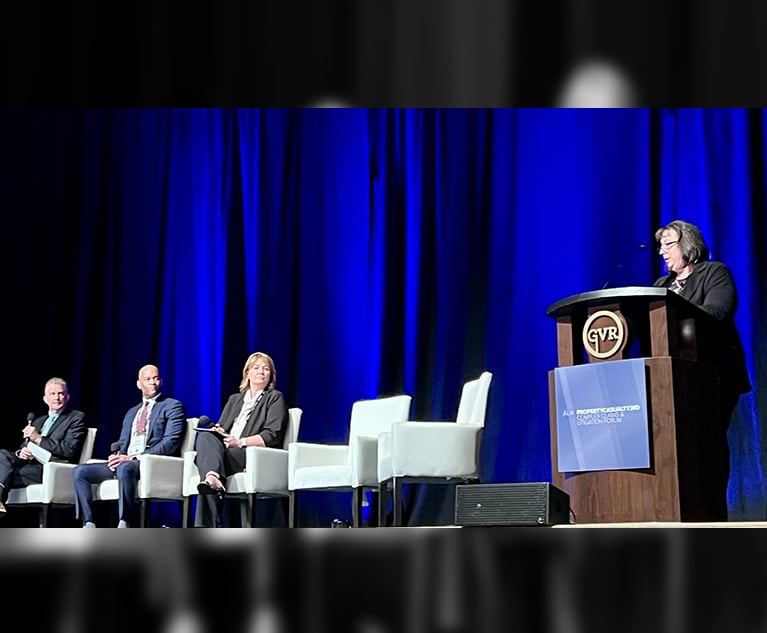 Karen Tucker of Cincinnati Insurance (at podium) moderated a dynamic review of the impact autonomous cars and advanced driver assistance systems might have on future claims. The panelists were (seated left to right) Mike Stankard of Aon; Kenneth Williams of insurance defense firm Segal McCambridge; and Erin Erickson of insurance defense firm Bohyer, Erickson, Beaudette & Tranel. Credit: Matt Jacob
Karen Tucker of Cincinnati Insurance (at podium) moderated a dynamic review of the impact autonomous cars and advanced driver assistance systems might have on future claims. The panelists were (seated left to right) Mike Stankard of Aon; Kenneth Williams of insurance defense firm Segal McCambridge; and Erin Erickson of insurance defense firm Bohyer, Erickson, Beaudette & Tranel. Credit: Matt Jacob
Does your car have a backup camera, collision warning system or even anti-lock brakes? Then guess what: You're driving a vehicle equipped with advanced driver assistance systems (ADAS) and autonomous features.
Recommended For You
Want to continue reading?
Become a Free PropertyCasualty360 Digital Reader
Your access to unlimited PropertyCasualty360 content isn’t changing.
Once you are an ALM digital member, you’ll receive:
- Breaking insurance news and analysis, on-site and via our newsletters and custom alerts
- Weekly Insurance Speak podcast featuring exclusive interviews with industry leaders
- Educational webcasts, white papers, and ebooks from industry thought leaders
- Critical converage of the employee benefits and financial advisory markets on our other ALM sites, BenefitsPRO and ThinkAdvisor
Already have an account? Sign In Now

